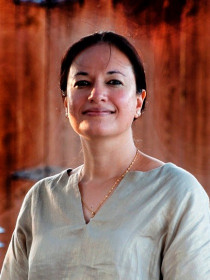
Nyla Ali Khan
Connect with Nyla
About Nyla
Khan emphasizes the traditional concepts of composition and style as well as recent rhetorical theory, teaching students to appreciate the various social and historical contexts of writing, reading, and language. Her personal history, education, and scholarship have made her sensitive to the diversity of cultural traditions and to the questions and conflicts within them, and she brings this sensitivity to her teaching as well. As a literature teacher, Khan stresses the importance of close reading while also drawing attention to the cultural, social, and historical contexts of literature. Through her writings, she critically observes the sociopolitical discourse in South Asia, particularly Kashmir, through an oblique focus from the margins instead of from an elitist center. Currently, she is involved in the restoration of the State Archives in Kashmir, a project on which she is working in collaboration with senior administrators in Jammu and Kashmir. Her goal is to engage in reflective action as an educator working with diverse cultural and social groups questioning the exclusivity of cultural nationalism, the erosion of cultural syncretism, the ever-increasing dominance of religious fundamentalism, and the irrational resistance to cultural and linguistic differences. She believes that acknowledging our complicity in oppression, reconceptualizing paradigmatic structures, and mobilizing cultural and political coalitions are riddled with conflict but it is the need of the day for us to engage in these processes. In 2015, Khan will act as editor of and contribute an article to a special issue of the Oxford Islamic Studies Online journal focusing on Jammu and Kashmir. She also serves on the Advisory Council of the Oklahoma Commission on the Status of Women.